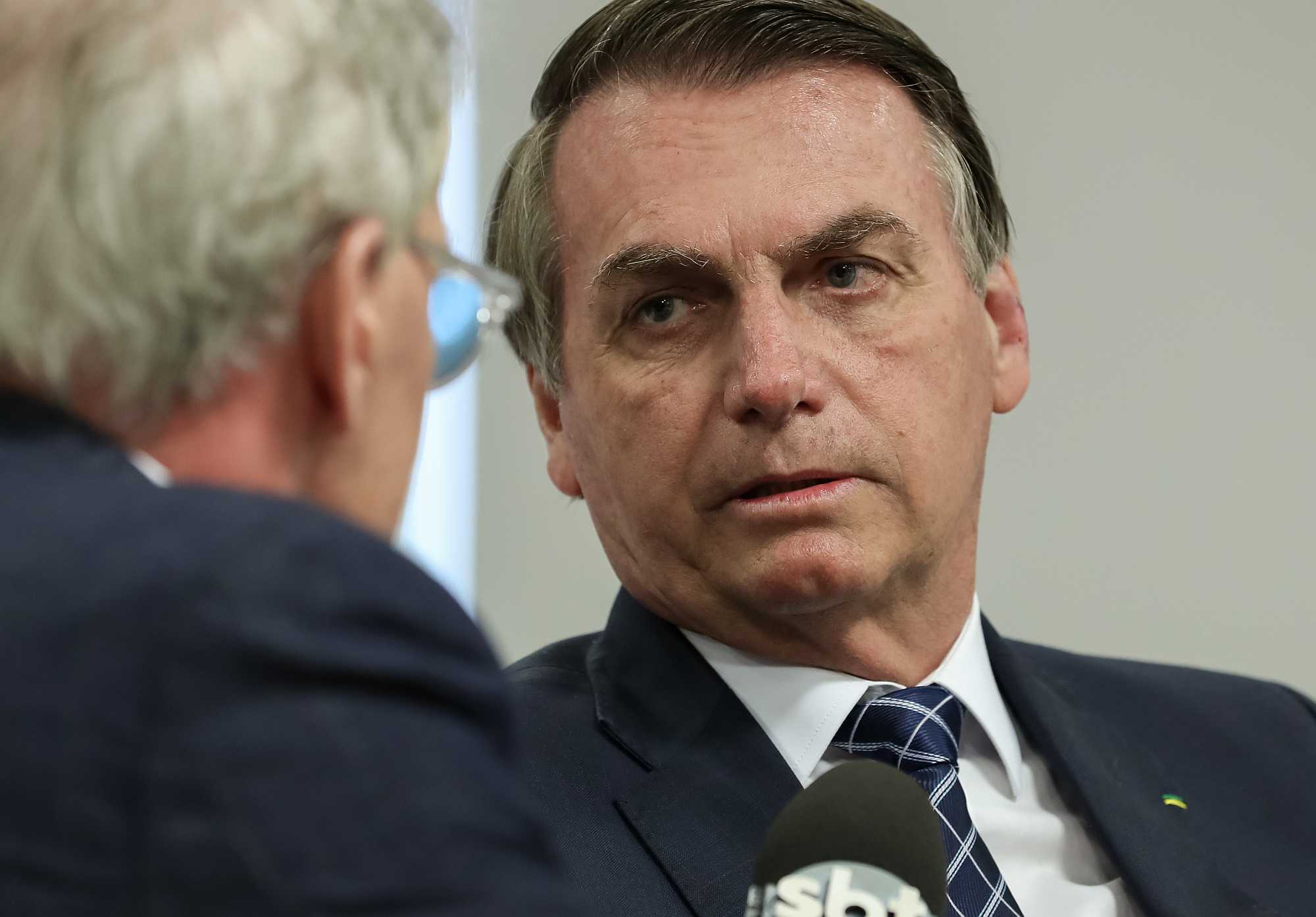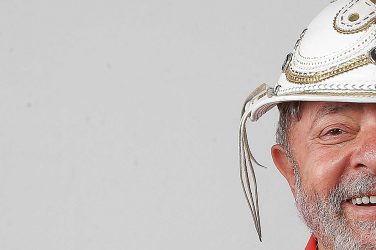A frequent and fiery critic of Brazil’s media, President Jair Bolsonaro declared he would no longer speak to journalists. Bolsonaro made the remarks outside his official residence in Brasília where most mornings for the past year he has fielded questions from reporters and greeted fans.
“I want to speak with you, but the national journalism association says that when I speak, I attack them,” Bolsonaro told reporters. “As I am a person of peace, I will not give more interviews.”
The move comes after the National Federation of Journalists said last week Bolsonaro’s presidency had “significantly affected the freedom of the press in Brazil.”
It registered 208 attacks – including physical and verbal – against the media or journalists in Brazil, in 2019, an increase of 54% compared with the previous year.
Bolsonaro was responsible for more than half of the incidents, it said. He mostly used public statements such as speeches, interviews or tweets to attack the media.
Since his election campaign in 2018, Bolsonaro has often lashed out at reporters or outlets.
Bolsonaro said in July that US journalist Glenn Greenwald – who was charged with cybercrimes earlier this week – could “do jail time” over the publication of leaked chats that threatened to undermine a massive corruption probe.
In a speech to the UN General Assembly in September, Bolsonaro accused the media of “lying” about the extent of fires raging in the Amazon.
The following month Bolsonaro announced he had canceled his subscription to the respected daily Folha de S. Paulo.
He also threatened to cancel TV Globo’s broadcasting license over a report linking him to a person accused of murdering a Rio de Janeiro councilwoman.
Glenn Greenwald
Brazilian authorities are seeking to bring charges against Glenn Greenwald, the journalist who published Edward Snowden’s intelligence agency leaks. Greenwald has been accused of “helping guiding and encouraging” a criminal group that hacked into the phones of Brazilian officials.
The journalist had recently published stories describing private messages between public prosecutors. At this point, federal public prosecutors have proposed the charges. However, a judge still needs to decide whether to formally indict him.
Six other individuals have also been accused of illegal telephone interceptions and conspiracy among other related crimes.
Brazilian prosecutors allege that, during his interactions with the group, Mr. Greenwald advised its members to delete messages that they had passed on to him.
Mr. Greenwald has not yet publicly responded to this particular allegation.
Last year, Mr Greenwald and colleagues published a series of ten investigative reports on news site The Intercept, which detailed “a massive trove of previously undisclosed materials” allegedly by Brazilian prosecutors and other officials.
They quoted from messages that had been sent via Telegram, a privacy-focused app that claims to be able to keep “messages safe from hacker attacks”.
The Folha newspaper said that those whose accounts had allegedly been breached included justice minister Sergio Moro and prosecutor Deltan Dallagnol, who is coordinating Operation Car Wash – a probe into the country’s biggest ever corruption scandal.
After details of the accusations against him were published, Mr Greenwald issued a statement via The Daily Beast news site. In it, he noted that Brazil’s Supreme Court had ruled last year that the administration should drop its investigation into him because it violated his press freedom rights.
“Less than two months ago, the federal police, examining all the same evidence cited by the public ministry, stated explicitly that not only have I never committed any crime but that I exercised extreme caution as a journalist never even to get close to any participation,” he added.
“We will not be intimidated by these tyrannical attempts to silence journalists. I am working right now on new reporting and will continue to do so.”
The New York-based Freedom of the Press Foundation has described the Brazilian attorney general office’s actions as being “beyond disturbing” and an “outrageous violation of press freedom”.
Edward Snowden, who was granted asylum by Russia after he fled the United States in 2013, tweeted his reaction to the news.
“Absolute red alert: This is unbelievably naked retaliation for revealing extreme corruption at the highest levels of [Brazilian President] Bolsonaro’s administration and an existential threat to investigative journalism in Brazil,” he wrote.
Condemnation
British Human Rights Organization ARTICLE 19 has condemned the Brazilian authorities for charging journalist Glenn Greenwald with ‘cybercrimes’ and accusing him of being part of a criminal organization. The accusation comes after The Intercept Brasil published several news stories in 2019 that were based on leaked mobile phone messages. The articles raised serious ethical and legal questions about powerful political figures in Brazil, including the present Justice Minister.
Denis Dora, Executive Director of ARTIGO 19 said:
“The charges against the journalist Glenn Greenwald are of immense concern to us, and further evidence of how fragile journalists’ rights are in Brazil. These charges come after President Jair Bolsonaro threatened him with the possibility of jail time, related to his reporting.”
“The charges by the prosecutors are particularly worrying as they are in contradiction to findings by the Brazilian Federal Police in their December 2019 indictment that no crime could be attributed to Greenwald.”
“We urge the Brazilian authorities to drop all charges again and to protect press freedom.”
ARTICLE 19’s annual Expression Agenda report, published in December, showed that freedom of expression in Brazil has fallen significantly since 2015. The Global Expression Report 2018-19 is the most comprehensive annual analysis of freedom of expression around the world.
It uses data to score countries on five key areas of freedom of expression: Transparency, Civic Space, Protection, Digital and Media. Based on the data for 2018, ARTICLE 19 believes that freedom of expression will decline even further in Brazil under President Jair Bolsonaro.
Dora added:
“With the election of President Jair Bolsonaro, Brazil has become an even more dangerous place to be a communicator. His verbal attacks on the media have serious repercussions for the safety of journalists and human rights defenders.”
Mercopress













